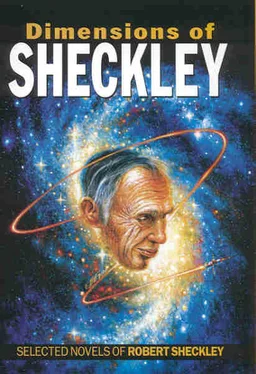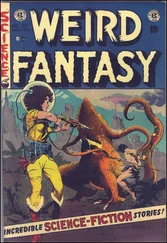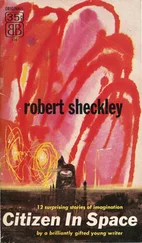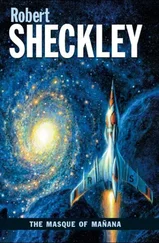| Sometimes even your own children were policemen, and they'd be as quick to arrest you as they would a stranger. |
Вашим собственным детям арестовать вас было что плюнуть. |
| Quicker!" |
Даже легче". |
| But others pointed out that all of that had happened long ago, that life was quiet now, that policemen were rarely seen, even though they were still believed to exist. |
Но другие утверждали, что это было очень давно, а сейчас жизнь спокойная, полицейского редко увидишь, хотя, конечно, где-то они есть. |
| But why had Smith come? |
Но зачем тут появился Смит? |
| Some felt that he was here to take something from us. |
Некоторые считали, что он пришел, чтобы забрать у нас что-то. |
| "What other reason is there for a stranger to come to a village like this?" |
"Какая еще может быть причина прийти в такую деревню?" |
| And others felt that he had come to give us something, citing the same argument. |
А другие говорили, что он пришел нам что-то дать, подкрепляя свою догадку теми же соображениями. |
| But we didn't know. |
Но точно мы ничего не знали. |
| We simply had to wait until Smith chose to reveal himself. |
Оставалось только ждать, пока Смит не решит открыться. |
| He moved among us as other men do. He had knowledge of the outside world; he seemed to us a far-traveling man. And slowly, he began to give us clues as to his identity. |
Судя по всему, человек он был во многом сведущий и немало повидавший. |
| One day I took him to a rise which looks out over our valley. |
Однажды мы поднялись с ним на холм. |
| This was at midautumn, a pretty time. |
То был разгар осени, чудесная пора. |
| Smith looked out and declared it a fine sight. |
Смит любовался лежащей внизу долиной. |
| "It puts me in mind of that famous tag from William James," he said. "How does it go? |
- Этот вид напоминает мне известную фразу Уильяма Джеймса, - сказал он. - |
| 'Scenery seems to wear in one's consciousness better than any other element in life.' |
"Пейзаж запечатлевается в человеческой памяти лучше, чем что-либо другое". |
| Eh? Apt, don't you think?" |
Подходит, верно? |
| "Who is or was this William James?" I asked. |
- А кто это - Уильям Джеймс? - спросил я. |
| Smith winked at me. |
Смит посмотрел на меня. |
| "Did I mention that name? |
- Разве я упомянул чье-то имя? |
| Slip of the tongue, my lad." |
Извини, друг, обмолвился. |
| But that was not the last "slip of the tongue." |
Но это была не последняя "обмолвка". |
| A few days later I pointed out an ugly hillside covered with second-growth pine, low coarse shrubbery, and weeds. |
Через несколько дней я указал ему на уродливый склон, покрытый молодыми елочками, кустарником и сорной травой. |
| "This burned five years ago," I told him. "Now it serves no purpose at all." |
- Здесь был пожар пять лет назад, - объяснил я. |
| "Yes, I see," Smith said. |
- Вижу, - произнес Смит. |
| "And yet-as Montaigne tells us-there is nothing useless in nature, not even uselessness itself." |
- И все же... Как сказал Монтень: "Ничто в природе не бесполезно, даже сама бесполезность". |
| And still later, walking through the village, he paused to admire Mrs. Vogel's late-blooming peonies. He said, |
Как-то, проходя по деревне, он остановился полюбоваться пионами мистера Вогеля, которые все еще цвели, хотя время их давно миновало, и обронил: |
| "Flowers do indeed have the glances of children and the mouths of old men...Just as Chazal pointed out." |
- Воистину у цветов глаза детей, а рты стариков. |
| Toward the end of the week, a few of us got together in the back of Edmonds's store and began to discuss Mr. Edgar Smith. |
В конце недели кое-кто из нас собрались в задней комнате магазина Эдмондса и стали обсуждать мистера Эдгара Смита. |
| I mentioned the things he had said to me. |
Я упомянул про фразы, сказанные им мне. |
| Bill Edmonds remembered that Smith had cited a man named Emerson, to the effect that solitude was impractical, and society fatal. |
Билл Эдмондс вспомнил, что Смит ссылался на человека по имени Эмерсон, который утверждал, что одиночество невозможно, а общество фатально. |
| Billy Foreclough told us that Smith had quoted Ion of Chios to him: that Luck differs greatly from Art, yet creates many things that are like it. |
Билли Фарклоу сообщил, что Смит цитировал ему какого-то Иона Хиосского: "Удача сильно разнится от Искусства, но все же создает подобные творения". |
| And Mrs. Gordon suddenly came up with the best of the lot; a statement Smith told her was made by the great Leonardo da Vinci: vows begin when hope dies. |
Но жемчужина оказалась у миссис Гордон; по словам Смита, это была фраза великого Леонардо да Винчи: "Клятвы начинаются, когда умирает надежда". |
| We looked at each other and were silent. |
Мы смотрели друг на друга и молчали. |
| It was evident to everyone that Mr. Edgar Smith-or whatever his real name might be-was no simple repairer of furniture. |
Было очевидно, что мистер Эдгар Смит - не простой мебельщик. |
| At last I put into words what we were all thinking. |
Наконец я выразил словами то, что все мы думали. |
| "Friends," I said, "this man appears to be a Mnemone." |
- Друзья, - сказал я. - Этот человек - мнемон. |
| Mnemones as a distinct class came into prominence during the last year of the War Which Ended All Wars. |
Мнемоны как отдельная категория выделились в течение последнего года Войны, Покончившей Со Всеми Войнами. |
| Their self-proclaimed function was to remember works of literature which were in danger of being lost, destroyed, or suppressed. |
Они объявили своей целью запоминать литературные произведения, которым грозила опасность быть затерянными, уничтоженными или запрещенными. |
| At first, the government welcomed their efforts, encouraged them, even rewarded them with pensions and grants. |
Сперва правительство приветствовало их усилия, поощряло и даже награждало. |
| But when the war ended and the reign of the Police Presidents began, government policy changed. |
Но после Войны, когда началось правление Полицейских Президентов, политика изменилась. |







